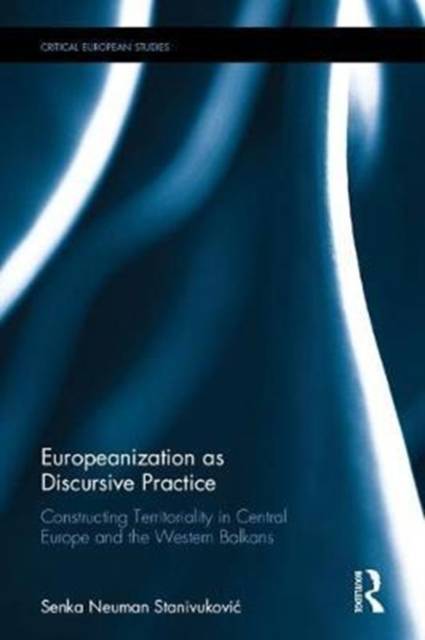
- Retrait gratuit dans votre magasin Club
- 7.000.000 titres dans notre catalogue
- Payer en toute sécurité
- Toujours un magasin près de chez vous
- Retrait gratuit dans votre magasin Club
- 7.000.000 titres dans notre catalogue
- Payer en toute sécurité
- Toujours un magasin près de chez vous
Europeanization as Discursive Practice
Constructing Territoriality in Central Europe and the Western Balkans
Senka Neuman StanivukovicDescription
Europeanization as Discursive Practice adopts a poststructuralist reading of Europeanization to study the effects of EU accession in the light of political territoriality and consequent state-building processes in the EU and Central and Eastern European countries (CEECs) and the Western Balkans, from 1990-2013.
Focusing on how domestic actors have framed Europe/EU norms in the debates on territorial reforms and the implications of this framing on policy reforms, it asks how competing articulations of the EU and its norms construct state territoriality in the given political and policy debates. The book argues that the European Union acted as a discursive force and a challenge to the established structures of understanding of territoriality, statehood, and power. With this, the author proposes a new research model for the study of Europeanization that goes beyond the neo-institutionalist account of the EU's policy/norm transfer to member/non-member states.
This text will be of key interest to students, scholars and practitioners of European integration, EU foreign policy, enlargement policy, and regional policy and territoriality in post-socialist spaces.
Spécifications
Parties prenantes
- Auteur(s) :
- Editeur:
Contenu
- Nombre de pages :
- 194
- Langue:
- Anglais
- Collection :
Caractéristiques
- EAN:
- 9781138100534
- Date de parution :
- 31-08-17
- Format:
- Livre relié
- Format numérique:
- Genaaid
- Dimensions :
- 156 mm x 234 mm
- Poids :
- 467 g







